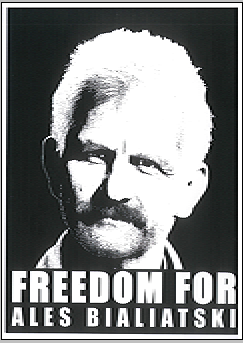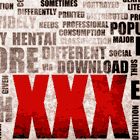18 Dec 2012 | Uncategorized
Belarus is Europe’s last dictatorship. Its people have suffered under president Alexander Lukashenko since 1994. Opposition media and activists are silenced by the former Soviet republic’s KGB
On 19 December 2010, thousands gathered to protest against rigged presidential elections. In response, Lukashenko’s forces staged a brutal crackdown, arresting dozens of political opponents and activists, including seven presidential candidates.
Index immediately set up a campaign to free the jailed political prisoners. Through targeted social media, news articles, blogs, protests and events, Index brought the situation faced by ordinary Belarusians to the attention of the international community. We worked with partners such as the Belarus Free Theatre and Free Belarus Now to stop international banks selling Belarusian government bonds; we lobbied the UK government and EU to institute sanctions; and at our 2011 Annual Awards we honoured all those detained.
After 18 months of persistent campaigning, in April 2012, Belarus caved in and political prisoners, including high-profile opposition leader, Andrei Sannikov, were released. All of this was possible because you helped us. But the story doesn’t end here….
This holiday season activist Ales Bialiatski is still in solitary confinement in Belarus. He recently told Index how just receiving photos and cards from our supporters on his 50th birthday let him know that people are fighting for his cause and keeping international attention on his plight.
Help us to fight for the release of Ales, for free speech for everyone in Belarus, and around the world.

17 Dec 2012 | Egypt
A 27 year-old Egyptian blogger has been released on bail pending an appeal of his 12 December conviction for blasphemy and contempt of religion. He was sentenced to three years in jail.
A Coptic Christian turned atheist, Alber Saber was arrested at his home three months ago after neighbours accused him of circulating the anti-Islam film Innocence of Muslims on his Facebook page. Although Saber denied the charge — and the prosecutor did not produce any evidence to support that claim — he was convicted and kept behind bars in a tiny cell at Cairo’s Tora prison until his release on Monday.
Saber ran an atheist group on Facebook and the prosecution is based on comparative religion material found on his bookshelf and statements critical of Islam found on his computer. Atheists do not get an easy ride in Egypt.
Looking haggard after his ordeal, in an interview with Index on Sunday he remained defiant saying “no price is too high for freedom.” We talked while Saber was in the Fifth Settlement Court signing papers to appeal his case. He was handcuffed but was in high spirits after learning that he would be released the following day. He was accompanied by his mother, Kariman Messiah and his lawyer Ahmed Ezzat from the Association for Free Thought and Expression.
Saber unzipped his high collar white track suit to show me a brown scar on his throat. “Inmates at El Marg prison where I was first taken after my arrest stabbed me in the throat after the prison guard told them I had insulted Islam,” he recounted, “I’m lucky I’m still alive.”
Ezzat said the case does not auger well for free expression in Egypt under President Mohamed Morsi’s Islamist rule. A draft constitution being put to a popular vote limits religious freedom to followers of the three Abrahamic faiths: Muslims, Christians and Jews. “[R]eligious practices are allowed as long as they do not disturb public order” and the document bans “insulting prophets” — a prohibition that analysts say “will open the door to arrests of bloggers and activists.” Islamists say that a majority yes-vote would usher in stability while opposition groups believe that it will plunge the country into a deeper political crisis.
Saber’s biggest regret is that he was not be able to vote “No” on the consitution he suspects will consolidate power for the Muslim Brotherhood. The first round of the referendum on the draft constitution was held on Saturday while Saber was still behind bars. He says:
I was jailed because we live in a theocracy. The ‘Islamist’ constitution will limit creativity and freedom of expression further
Saber and other sceptics fear that Egypt’s minority Christians — who make up 10 to 12 per cent of the population — will become more of a target as Egypt grows more conservative post-revolution. On 9 October last year, Coptic Christians peacefully demonstrating against the destruction of churches outside of Egypt’s state television complex, Maspero, were brutally attacked by security forces, resulting in the deaths of 27 protesters. In July this year, the Coptic community of Dahshur, a village south of Cairo, were forced to flee after a rise in sectarian tensions.
“Why is Abu Islam a free man? He has not been imprisoned but my son has,” argues Kariman Messiah, Alber’s mother wearing a black “Free Alber Saber” T-shirt. Abu Islam, a radical Muslim cleric is currently on trial for burning the Bible during a 14 September rally protesting the Innocence of Muslims.
Messiah also raised the cases of Bishoy Kamel, a Coptic Christian school teacher from the southern city of Sohag who was sentenced to six years in prison last September for posting cartoons online deemed offensive to Islam and for insulting President Morsi and that of two Coptic children aged 9 and 10 who have been detained on blasphemy charges.
Messiah believes her son was jailed on what she called “trumped-up charges” as a result of his political activism. “In January 2012, state security officers paid us a dawn visit and ransacked our home,” she said, tearing up.
While mother and son were unable to return to their home in Marg for fear that Saber would face further intimidation, Messiah said that “all that matters now is that he is free and will be able to pursue his studies at the Academy.”
For Saber, a Computer Science student now in his final year, the future is uncertain but he vows to continue his free speech activism, no matter how high the stakes.
Shahira Amin is an Egyptian journalist and broadcaster
17 Dec 2012 | News
 Index welcomes the government’s rejection of a proposal for mandatory blocking of “internet filth”
Index welcomes the government’s rejection of a proposal for mandatory blocking of “internet filth”
(more…)
17 Dec 2012 | Digital Freedom, Uncategorized
I’ve just returned home after two weeks at the World Conference on International Telecommunications (WCIT). I will be writing a longer piece in Index on Censorship magazine in the New Year, but my initial thoughts are as follows.
First, we worked hard and compromised. This is important to take note of because I expect there to be claims that the UK and US never intended to sign the treaty. In my experience, this was not the case at all: Every single delegation both large and small worked hard to discuss, compromise, put forward ideas, and discuss further the treaty. I spent very long days covering my remit of the treaty and so did others. The Chairs of the working groups worked hard despite facing complete disagreement on texts. Delegates did try to find accord.
Second, we all understand what other countries need and want. If there was one thing to take away from this conference, it was that myself and others now have a greater of understanding of what other countries were trying to achieve through this treaty. Developing countries need skills and capacity building. Some want to see direct income from internet infrastructure while others seek only to suppress the communication and freedom of their citizens. It is clear to me now how this is playing out on an international stage and I will touch upon this more in my longer article for Index
Third, and most importantly, the UK stood up for freedom online. Going into this treaty the UK and allies said that they could not accept a treaty in which the internet was regulated. The Chair of the conference, by forcing through a “non-vote” on an internet resolution, made it all about the internet. The resolution passed and suddenly the treaty negotiations changed by the middle of last week. The final treaty was, after this and many days of negotiation, a bad deal for the UK and so the UK decided not to sign. It needs to be said that the UK stood up for freedom in spite of everything happening at home including the Comms Data Bill and press regulation issues.
What I take away from this conference is that the fundamental divide is not the internet itself but those that believe that humans achieve their best when they are free and those that do not. We have a lot of work to do spreading this idea and demonstrating that freedom online means prosperity and stability to all citizens. But we should not see this as a negative outcome out of the WCIT, but as an opportunity to spread what we believe in thanks, in a very small part, to the fact that the UK stood up for its fundamental ideals.
Dominique Lazanski is the head of digital policy at the TaxPayers’ Alliance and a member of the UK delegation to WCIT-12




 Index welcomes the government’s rejection of a proposal for mandatory blocking of “internet filth”
Index welcomes the government’s rejection of a proposal for mandatory blocking of “internet filth”